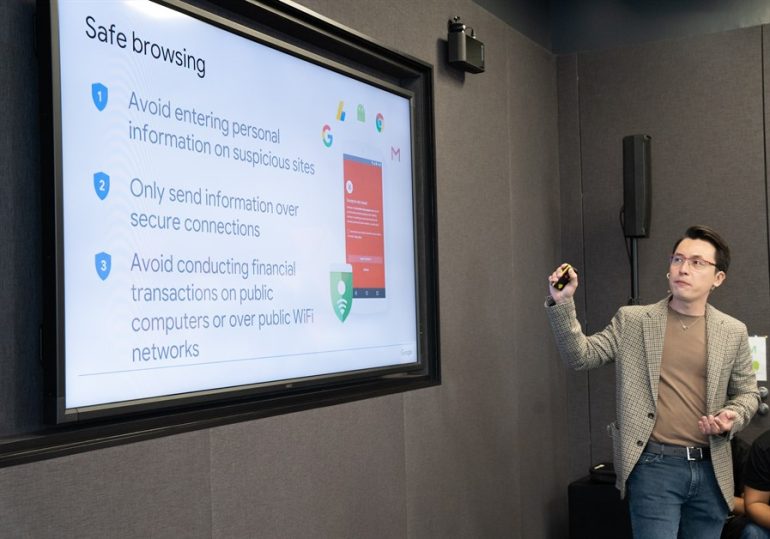Most people use the internet for everyday activities, and with this, online safety is increasingly becoming a top priority for many Filipinos.

According to Google Trends, the Philippines was among the Top 3 countries in the world searching for the terms Computer Virus and Computer Emergency Response Team in 2022, as search interest for Computer Virus, in particular, reached a 10-year high in the country.
The country was also among the top 5 countries and territories in the world that searched for the following topics: “phishing,” “Trojan Horse,” “privacy,” “private browsing,” “Identity Theft,” “Malware,” “Internet Safety,” “Cyber Bullying,” and “Email Spoofing.”
Top-trending cyber security topics in Philippines for 2022:
- Malware Scanner
- WinNuke
- Computer Virus
- Password Manager
- Computer Security
- Rootkit
- Email Bomb
- Random Password Generator
- Data Breach
- Trojan Horse
This shows that Filipinos are now more concerned about online safety more than ever.
Features and tools for online safety
As such, Google, in its mission to ensure that everyone is safe online, has implemented and introduced various security measures and features that can be used for securing accounts and keeping them away from malicious actors.
Here are some tips and features that you can sue to keep yourself and your family safe online.
Use Strong Passwords
Passwords truly matter. Password managers are your best bet to secure your accounts. Google Password Manager helps you create strong and unique passwords that are hard to crack, store them for you, alert you if your credentials have been compromised by a breach, and if you are entering them into malicious websites. Fact: Google checks 1 billion passwords for breaches, daily.
Make Sure You’re Going to Legit Sites
These days, a lot of fake websites that look like they’re legit have popped up. As such, you should be on your toes and always be alert when you spot suspicious emails, texts, or phone calls from sources who pretend to be from your bank, stores you frequent, or even a friend.
These fake websites can contain phishing links designed to steal sensitive data and information. And while URLs and HTTPS are great indicators of whether the website you’re visiting is legit, it’s always best to avoid directly clicking on a link; instead, type in the URL. Before you click a link, you can also hover over it first, as sometimes, this can indicate that it’s going to take you to a malicious site instead.
a. Globally, Google protects Gmail users from nearly 15 billion unwanted messages a day, blocking more than 99.9% of spam, phishing and malware.
b. In the first half of November, Google blocked over 231 billion spam and phishing messages, globally, 10% higher than the average volume.
c. Today, over 5 billion devices are automatically protected by Safe Browsing technology.
Use 2-step verification for extra protection
You can take a Security Checkup, which is a step-by-step process of addressing personalized security recommendations. These include enrolling on 2-step verification for an extra layer of security at sign-in, setting up your account in case you need to recover it, managing risky apps, and more.
a. In 2021, Google successfully auto-enabled 2SV for over 150 million people, and also required it for over 2 million of YouTube creators. As a result, Google has seen a 50% decrease in accounts being compromised among those users.
Be in control of your online privacy
As an internet user, keeping your activity private is very important. Google can easily help you set up your privacy settings on your Google Account with Privacy Checkup to ensure that your online activity and data are well-protected. This also goes a long way in controlling and personalizing the online ads and content you see as you browse, which can be customized in the My Ad Center.
Protect Your Devices
Our devices are connected to many things, and it’s essential to keep them secure with security updates and patches, which are crucial to closing doors to attackers and patching up vulnerabilities. Install apps that are from trusted sources, use unique passwords and avoid reusing codes across your devices.
Google Play Protect scans billions of apps and continually updates to make sure you’re getting ones that are vetted through scanning.
Check out safety.google to know more on how you can be safer and more secure online.
Emman has been writing technical and feature articles since 2010. Prior to this, he became one of the instructors at Asia Pacific College in 2008, and eventually landed a job as Business Analyst and Technical Writer at Integrated Open Source Solutions for almost 3 years.







